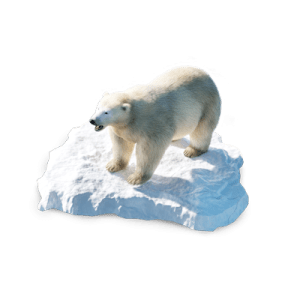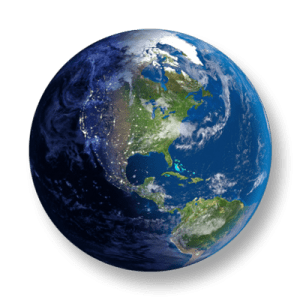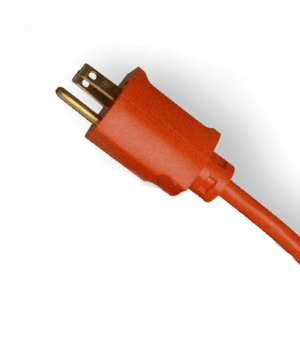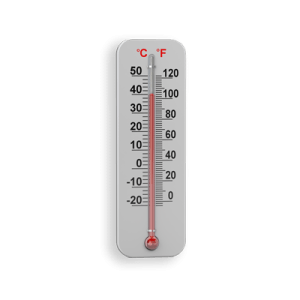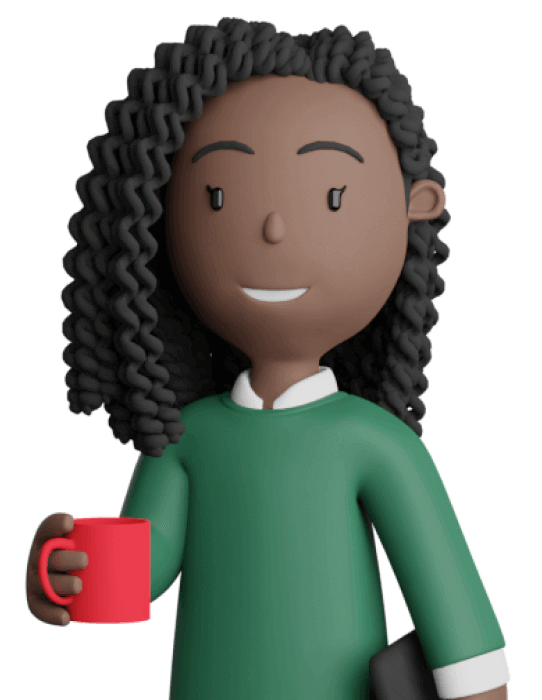Melting ice experiment
Get hands-on to explore how melting glaciers and sea ice affect rising sea levels.
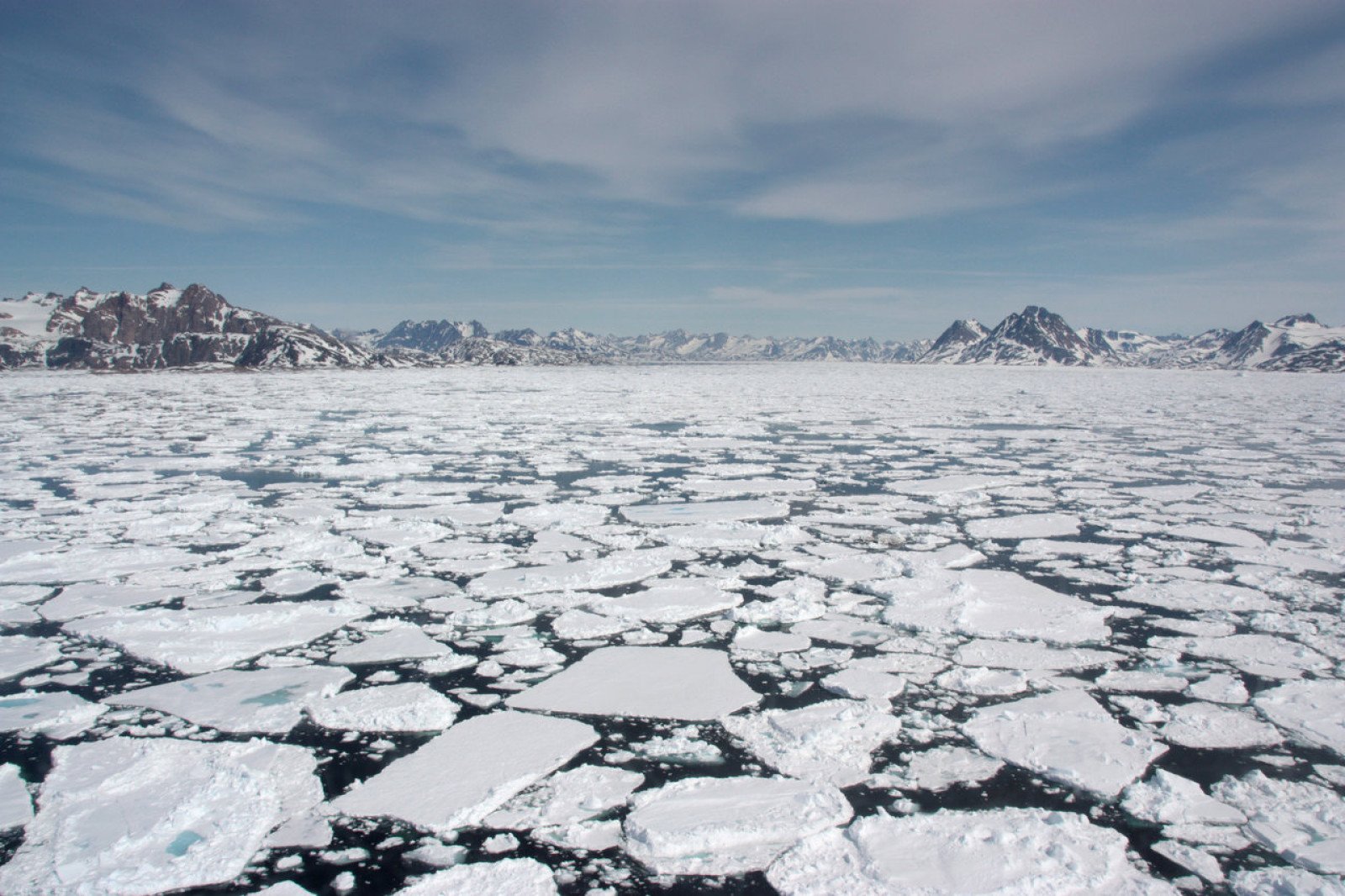
Overview
Students view a slideshow about where sea ice comes from and where it goes when it melts. Make predictions and observations in a hands-on experiment about the effects of melting glaciers and sea ice. Discuss the results and how they illustrate the impacts of rising sea levels on coastlines around the world.
Instructions
What you'll need
- For each group:
- Two identical see-through containers
- Two rocks or clay to build “land” (if using rocks for the land, they should be approximately ¼ the size of the container and have a flat surface for the ice)
- Water
- Marker
- Ten ice cubes
- Salt (optional)
- Food colouring (optional)
- “Melting ice” slideshow
- “Melting ice experiment” worksheet
- “Melting ice experiment” handout
- “Melting ice experiment competency assessment”
- Show the “Melting ice” slideshow.
- Title slide: Ask students to think about where glaciers, icebergs and sea ice come from.
- Slide 2: Precipitation sometimes falls as snow and accumulates in places where it’s cold enough or at higher elevations. Over time it compacts and forms glaciers and ice sheets.
- Ask students if they've heard about the Earth’s ice melting due to climate change.
- Slide 3: This image of Athabasca Glacier in Jasper National Park shows how far the glacier has retreated since 1925. Glaciers in B.C., Yukon and Alberta are retreating faster than at any time in history.
- Slide 4: Ice floes in the Arctic. In the past 40 years, about 2.4 million square kilometres of Arctic sea ice have disappeared. That’s about the size of B.C., Alberta and the Yukon combined.
- Slide 5: Give students time to share ideas about what they think happens when the glaciers and sea ice melts. Let’s find out.
- Divide students into small groups for the experiment to explore the effects of melting glaciers and sea ice on rising sea levels.
- Give each group the “Melting ice experiment” handout and review the set up.
- Alternatively, give students various materials and challenge them to design their own experiment to test the effects of melting ice on rising sea levels.
- Have each student complete their own “Melting ice experiment” worksheet. Allow time for students to make a prediction, conduct the experiment, make observations and explain their findings. Circulate to answer questions and assess learning using the “Melting ice experiment competency assessment”.
- Discuss and debrief the experiment.
- Did the water level rise more in one of the containers? Why?
- Compare the results with your predictions.
- How does the experiment relate to the “real-world”?
- Discuss the impact of our actions on global warming, melting ice and climate change. The way we use energy and resources impacts the earth. When we reduce our use, we help reduce the impacts of climate change.
Modify or extend this activity
Extensions
- Conduct an experiment related to albedo. Albedo is the scientific word to describe a simple concept. White or light surfaces, such as ice and snow, reflect most of the Sun’s energy; whereas dark surfaces, such as land, forests and oceans, absorb most of the Sun’s energy.
- Provide students with thermometers, bottles, black construction paper, aluminium foil and heat lamps.
- Have them design an experiment related to albedo and the effect of melting ice on Earth’s temperature.
- Use Google Earth or Google Maps to find the closest glaciers to your community. Learn more about how or if they’ve changed over the last 100 years.
Curriculum Fit
Grade 7 Science
Big idea
- Earth and its climate have changed over geological time.
Content
- Evidence of climate change over geological time and the recent impact of humans
Curricular competencies
Questioning and predicting
- Demonstrate a sustained intellectual curiosity about a scientific topic or problem of personal interest
- Make predictions about the findings of their inquiry
Planning and conducting
- Measure and control variables (dependent and independent) through fair tests
- Observe, measure and record data (qualitative and quantitative)
Processing and analyzing data and information
- Use scientific understandings to identify relationships and draw conclusions
Evaluating
- Identify possible sources of error and suggest improvements to their investigation methods
- Consider social and environmental implications of the findings from their own and others’ investigations
Applying and innovating
- Transfer and apply learning to new situations
Communicating
- Communicate ideas, findings, and solutions to problems, using scientific language, representations, and digital technologies as appropriate
Assessments
- Assess learning using the “Melting ice experiment competency assessment”.
- Assess “Melting ice experiment” worksheet for both content and competency development.
Teaching Notes
Rising sea levels
There are two main causes of rising sea levels. Glaciers and ice sheets are large bodies of ice that are found on land. As the Earth warms, glaciers and ice sheets are melting at a faster rate than before. This meltwater flows into oceans, raising sea levels. Generally, when ice floats, it displaces an equal volume of water as the volume of water it creates when it melts, so it should not increase sea levels.
Secondly, as the Earth warms, oceans are also absorbing more heat due to the albedo effect (see Extensions). When water gets warmer, it expands, also causing sea levels to rise. This will affect many people who live in communities along the coast.





